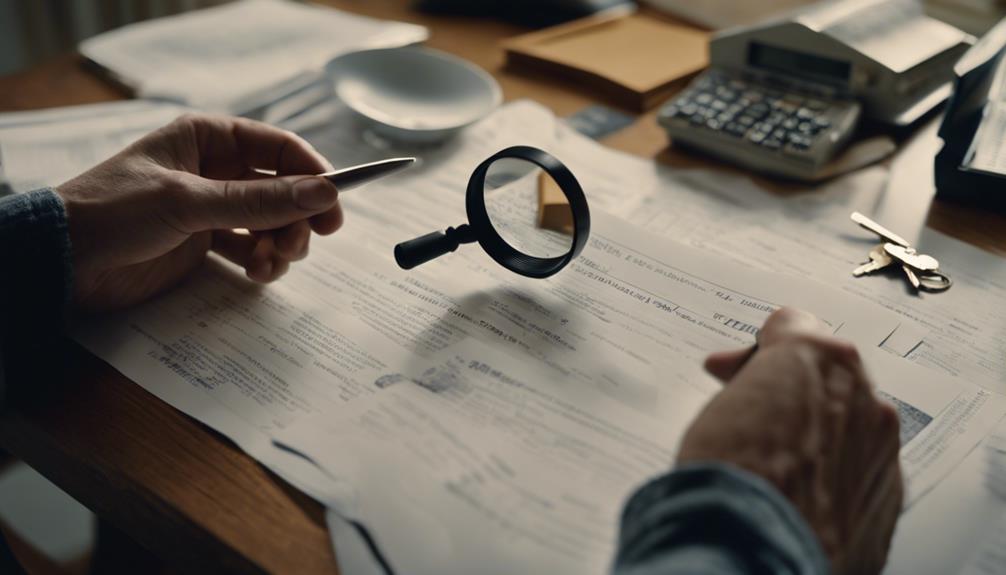When navigating property transactions, did you know that real estate legal services could be your most valuable asset? Understanding the intricacies of contracts, conducting due diligence, and ensuring a smooth closing process are all crucial aspects of a successful real estate deal.
However, the nuances of legal assistance in this domain often go unnoticed. By unraveling the complexities of legal procedures and the roles of professionals in the field, you can set yourself up for a seamless property transaction experience.
Importance of Legal Assistance

Legal assistance plays a crucial role in ensuring smooth property transactions. When buying or selling real estate, having a knowledgeable real estate attorney by your side can make a significant difference. They help navigate complex legal processes, ensuring all documents are properly drafted and reviewed. Your attorney can conduct title searches to uncover any potential issues with the property's ownership history, protecting you from future disputes. Additionally, they can assist in negotiating terms and conditions, making sure your interests are well-represented throughout the transaction.
Moreover, legal assistance is vital for understanding local regulations and zoning laws that may affect your property. Your attorney can provide valuable insights into potential risks or liabilities associated with the real estate deal. They can also help in interpreting contract terms and conditions, ensuring you're fully aware of the obligations you're undertaking. Overall, having legal support in real estate transactions can provide you with peace of mind and protect your investments.
Understanding Real Estate Contracts
To grasp the intricacies of real estate contracts, understanding the key terms and clauses is essential. Real estate contracts are legally binding agreements that outline the terms of a property transaction between buyers and sellers.
It's crucial to pay close attention to details such as the purchase price, financing terms, contingencies, and closing date. The purchase price is the amount agreed upon for the property, while financing terms specify how the buyer will fund the purchase. Contingencies are conditions that must be met for the contract to be valid, such as a satisfactory home inspection or appraisal. The closing date is when the ownership of the property is transferred from the seller to the buyer.
Additionally, clauses regarding property disclosures, warranties, and dispute resolution shouldn't be overlooked. Understanding these components will help you navigate real estate contracts with confidence and ensure a smooth transaction process.
Due Diligence in Property Transactions

When conducting due diligence in property transactions, thorough research and investigation are vital to uncovering potential issues or risks. Start by examining the property's title to ensure there are no liens, encumbrances, or legal disputes that could affect the transaction. It's crucial to review zoning laws, permits, and land use regulations to verify that the property can be used for its intended purpose.
Environmental assessments should be conducted to identify any contamination or hazards that may impact the property's value or use.
Additionally, you must review financial documents such as tax records, insurance policies, and existing leases to understand the property's financial health and obligations. Physical inspections of the property can reveal structural issues or maintenance concerns that may require costly repairs. Engage professionals like surveyors, appraisers, and engineers to provide expert opinions on the property's condition and value.
Role of Legal Professionals
Conducting thorough due diligence in property transactions requires leveraging the expertise of legal professionals to navigate complex legal matters and ensure the transaction's legality and protection. Legal professionals play a crucial role in real estate transactions by providing guidance on various legal aspects, such as contract review, title searches, zoning regulations, and compliance with local laws. They help in drafting and reviewing agreements to safeguard your interests and ensure all legal requirements are met.
Moreover, legal professionals assist in resolving any disputes that may arise during the transaction process, offering solutions to mitigate risks and protect your investment. Their expertise in interpreting complex legal documents and regulations can help you make informed decisions and avoid potential pitfalls. By working closely with legal professionals, you can navigate the intricate legal landscape of real estate transactions with confidence and peace of mind, knowing that your interests are being safeguarded by experienced professionals.
Closing the Real Estate Deal

Wondering how to finalize the real estate deal smoothly and efficiently? Closing the real estate deal is the culmination of all the hard work put into finding the right property and navigating the legal processes. As you approach the closing stage, make sure to review all the important documents carefully. This includes the purchase agreement, loan documents, title insurance, and any other relevant paperwork.
One crucial step in closing the deal is conducting a final walkthrough of the property to ensure it's in the agreed-upon condition. This is your last chance to identify any issues before signing on the dotted line. Once everything is in order, you'll move on to the closing meeting where you'll sign all the necessary paperwork and make the required payments.
Having a real estate attorney by your side can provide valuable support during the closing process. They can review the closing documents, explain any legal jargon, and ensure that your interests are protected. With attention to detail and proper guidance, you can successfully close the real estate deal and officially become the owner of your new property.
Frequently Asked Questions
Can a Real Estate Lawyer Help Me With Zoning Regulations and Land Use Restrictions?
Yes, a real estate lawyer can assist you with zoning regulations and land use restrictions. They have the expertise to navigate these complex legal matters, ensuring compliance with local laws and regulations.
What Are the Potential Legal Consequences of Not Disclosing Known Defects in a Property During a Transaction?
If you don't disclose known defects in a property during a transaction, you could face serious legal consequences. Failure to reveal such issues may lead to lawsuits, financial penalties, and even the possibility of the sale being rescinded.
It's crucial to be transparent about any defects to ensure a smooth and legal property transaction. Consult with a real estate lawyer to understand your obligations and protect yourself from potential legal repercussions.
How Can a Real Estate Lawyer Assist With Resolving Disputes Between Buyers and Sellers During a Property Transaction?
When disputes arise between buyers and sellers during a property transaction, a real estate lawyer can assist by providing legal guidance, negotiating solutions, and representing your interests.
They can review contracts, identify potential issues, and work to resolve disagreements to help facilitate a successful transaction.
With their expertise in real estate law, they can help navigate complex situations and ensure that your rights are protected throughout the process.
Are There Any Specific Legal Considerations for Purchasing Property in a Foreign Country?
When purchasing property in a foreign country, it's crucial to be aware of specific legal considerations. These may involve understanding local regulations, tax implications, and potential differences in property laws.
Consulting with a real estate lawyer experienced in international transactions can help navigate these complexities and ensure a smooth purchase process. Their expertise can provide valuable insights and guidance to protect your interests and avoid any legal hurdles.
What Legal Steps Should Be Taken to Ensure the Smooth Transfer of Ownership in a Real Estate Deal Involving Multiple Parties?
To ensure a smooth transfer of ownership in a real estate deal involving multiple parties, you should first gather all necessary documents and agreements. Clearly outline each party's responsibilities and rights in the transaction.
Consult with a real estate attorney to review and finalize all legal paperwork. Make sure all parties understand and agree to the terms before proceeding with the transfer of ownership.
This proactive approach can help prevent potential conflicts or delays.
Conclusion
In conclusion, when it comes to property transactions, having a real estate legal professional by your side is crucial. They can help you navigate complex contracts, conduct due diligence, and ensure a smooth closing process.
Don't underestimate the importance of legal assistance in real estate deals – it can make all the difference in protecting your interests and ensuring a successful transaction. Trust in the expertise of legal professionals to guide you through the process with confidence.






